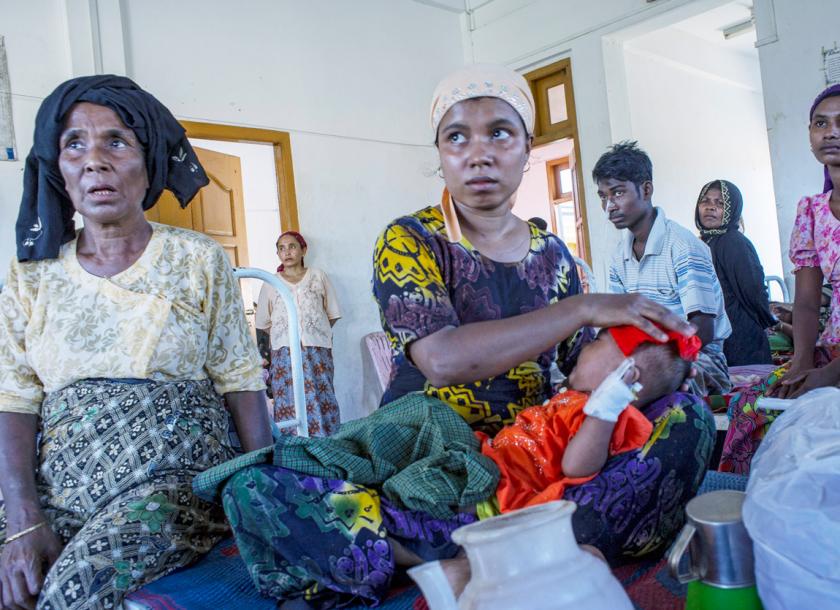Myanmar: Private sector to help Rakhine as investor jitters rise
This comes after a couple of important investors in the state’s offshore oil and gas industry have expressed concern in continuing with their operations the area.
On October 21, nine working committees from the private sector will participate in the Union Enterprise for Humanitarian Assistance, Resettlement and Development in Rakhine (UEHRD).
A committee led by State Counsellor Daw Aung San Suu Kyi to implement UEHRD was formed last week with an aim for the government, the people, private sector, local and international non-government organisations and partner countries to cooperate and participate in multi-sector development of the Rakhine State, according to a statement by the State Counsellor office.
Nine working committees were formed under UEHRD with businessmen, merchants and personnel from Union of Myanmar Federation of Chamber of Commerce and Industries (UMFCCI). The committees will help organise and implement initiatives to help rehabilitate nine selected sectors of the Rakhine State economy.
The sectors will include Special Economic Zone development, construction and infrastructure, agriculture and livestock breeding, information and public relations, job creation and vocational trainings, healthcare, fund raising and tourism promotion.
“We will prove that we can help in Rakhine’s development despite the many difficulties. We will invite businessmen and the people via various platforms including the Internet, mobile phones and social media.” UEHRD Chief Coordinator Dr. Aung Tun Thet said.
Action plans will be set by the working committees for immediate resettlement where necessary, while humanitarian aid assistance, job creation and promotion of trade and investment will be carried out.
Policies proposed by the committees will be collected and submitted at a coming October 25 meeting between UEHRD and the private sector for approval.
As an initial study tour, UMFCCI and its associate organisations will visit the Rakhine State during the last week of October.
Investor jitters
The government and private sector are upping efforts to rehabilitate and create longer term development opportunities for the Rakhine State at a time when investor jitters are rising following the displacement of some 600,000 Muslim Rohingya from northern Rakhine.
On October 19, shareholder activists at Chevron Corp pressed the US oil major to discuss an August 31 letter they had sent to the company asking it to consider cutting ties with “governments complicit in genocide,” Reuters reported. The shareholders have asked Chevron to pressure the Myanmar government for a solution for the crisis.
Chevron Myanmar subsidiary, Unocal Myanmar Offshore Co, has projects that include a minority interest in natural gas production and a pipeline, according to the company’s website.
Reuters quoted the activist shareholders as saying that they are “growing increasingly concerned over the lack of a constructive response from Chevron” on their requests since the letter was sent.
Meanwhile, Peter Coleman, CEO of Australian offshore driller Woodside Petroleum, is also reported to be traveling to Myanmar to assess the extent of the crisis in Rakhine in the coming weeks.
Woodside, which is invested in several gas-rich wells off the coast of southern Rakhine, was recently reported to have put its drilling activities in the state on hold over concerns of the projects’ viability.
Keren Adams, the director of advocacy at the Melbourne-based Human Rights Law Centre, was quoted as saying that Woodside was “walking a very fine line in terms of its human rights obligations” by continuing to work in Myanmar, as its operations would generate taxes and income for a regime accused of atrocities against the Rohingya.
Source: https://www.mmtimes.com/news/private-sector-help-rakhine-investor-jitters-rise.html


 Thailand
Thailand




